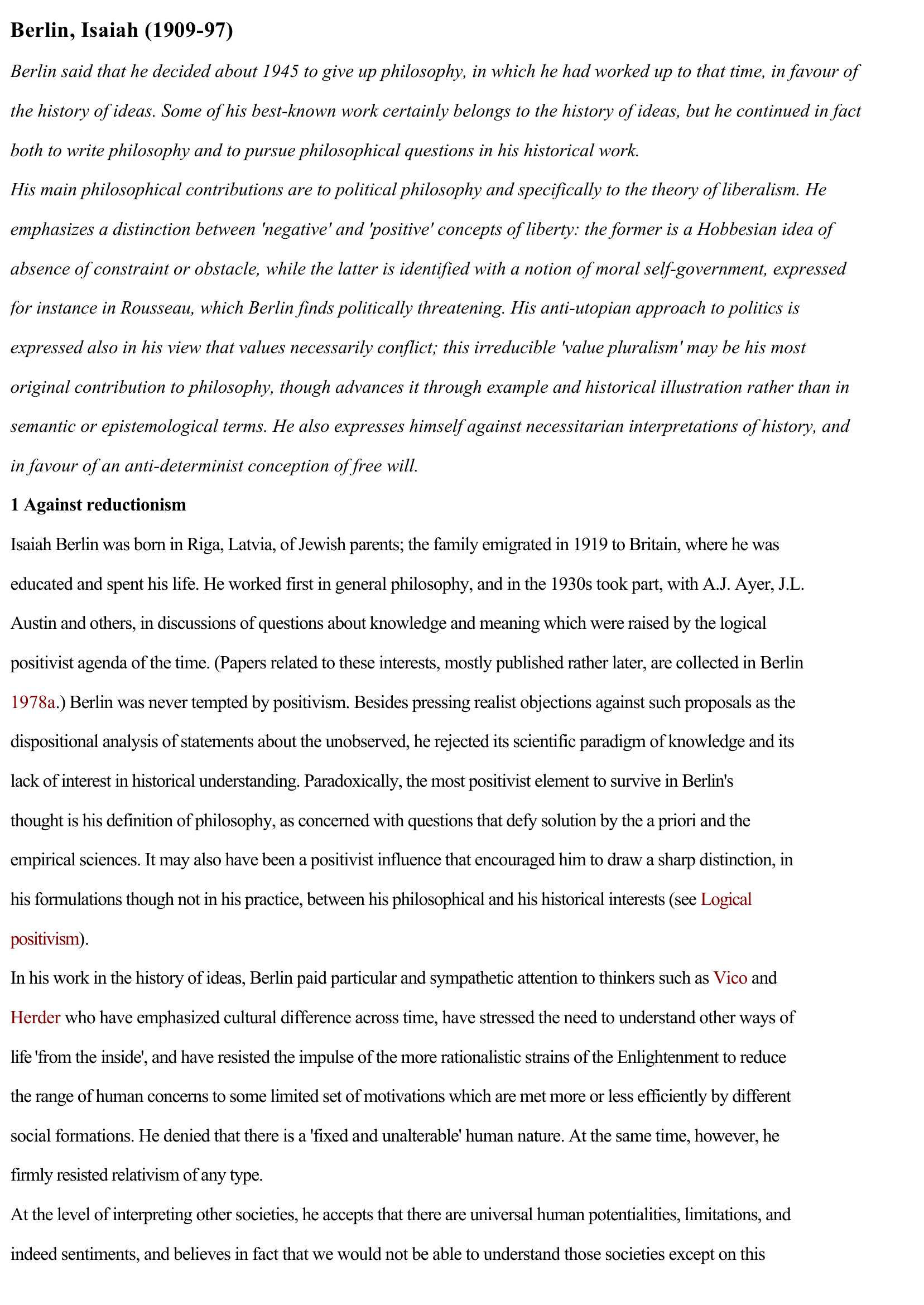Berlin, Isaiah
Publié le 16/05/2020

Extrait du document
«
Berlin, Isaiah (1909-97)
Berlin said that he decided about 1945 to give up philosophy, in which he had worked up to that time, in favour of
the history of ideas.
Some of his best-known work certainly belongs to the history of ideas, but he continued in fact
both to write philosophy and to pursue philosophical questions in his historical work.
His main philosophical contributions are to political philosophy and specifically to the theory of liberalism.
He
emphasizes a distinction between 'negative' and 'positive' concepts of liberty: the former is a Hobbesian idea of
absence of constraint or obstacle, while the latter is identified with a notion of moral self-government, expressed
for instance in Rousseau, which Berlin finds politically threatening.
His anti-utopian approach to politics is
expressed also in his view that values necessarily conflict; this irreducible 'value pluralism' may be his most
original contribution to philosophy, though advances it through example and historical illustration rather than in
semantic or epistemological terms.
He also expresses himself against necessitarian interpretations of history, and
in favour of an anti-determinist conception of free will.
1 Against reductionism
Isaiah Berlin was born in Riga, Latvia, of Jewish parents; the family emigrated in 1919 to Britain, where he was
educated and spent his life.
He worked first in general philosophy, and in the 1930s took part, with A.J.
Ayer, J.L.
Austin and others, in discussions of questions about knowledge and meaning which were raised by the logical
positivist agenda of the time.
(Papers related to these interests, mostly published rather later, are collected in Berlin
1978a .) Berlin was never tempted by positivism.
Besides pressing realist objections against such proposals as the
dispositional analysis of statements about the unobserved, he rejected its scientific paradigm of knowledge and its
lack of interest in historical understanding.
Paradoxically, the most positivist element to survive in Berlin's
thought is his definition of philosophy, as concerned with questions that defy solution by the a priori and the
empirical sciences.
It may also have been a positivist influence that encouraged him to draw a sharp distinction, in
his formulations though not in his practice, between his philosophical and his historical interests (see Logical
positivism ).
In his work in the history of ideas, Berlin paid particular and sympathetic attention to thinkers such as Vico and
Herder who have emphasized cultural difference across time, have stressed the need to understand other ways of
life 'from the inside' , and have resisted the impulse of the more rationalistic strains of the Enlightenment to reduce
the range of human concerns to some limited set of motivations which are met more or less efficiently by different
social formations.
He denied that there is a 'fixed and unalterable' human nature.
At the same time, however, he
firmly resisted relativism of any type.
At the level of interpreting other societies, he accepts that there are universal human potentialities, limitations, and
indeed sentiments, and believes in fact that we would not be able to understand those societies except on this.
»
↓↓↓ APERÇU DU DOCUMENT ↓↓↓


